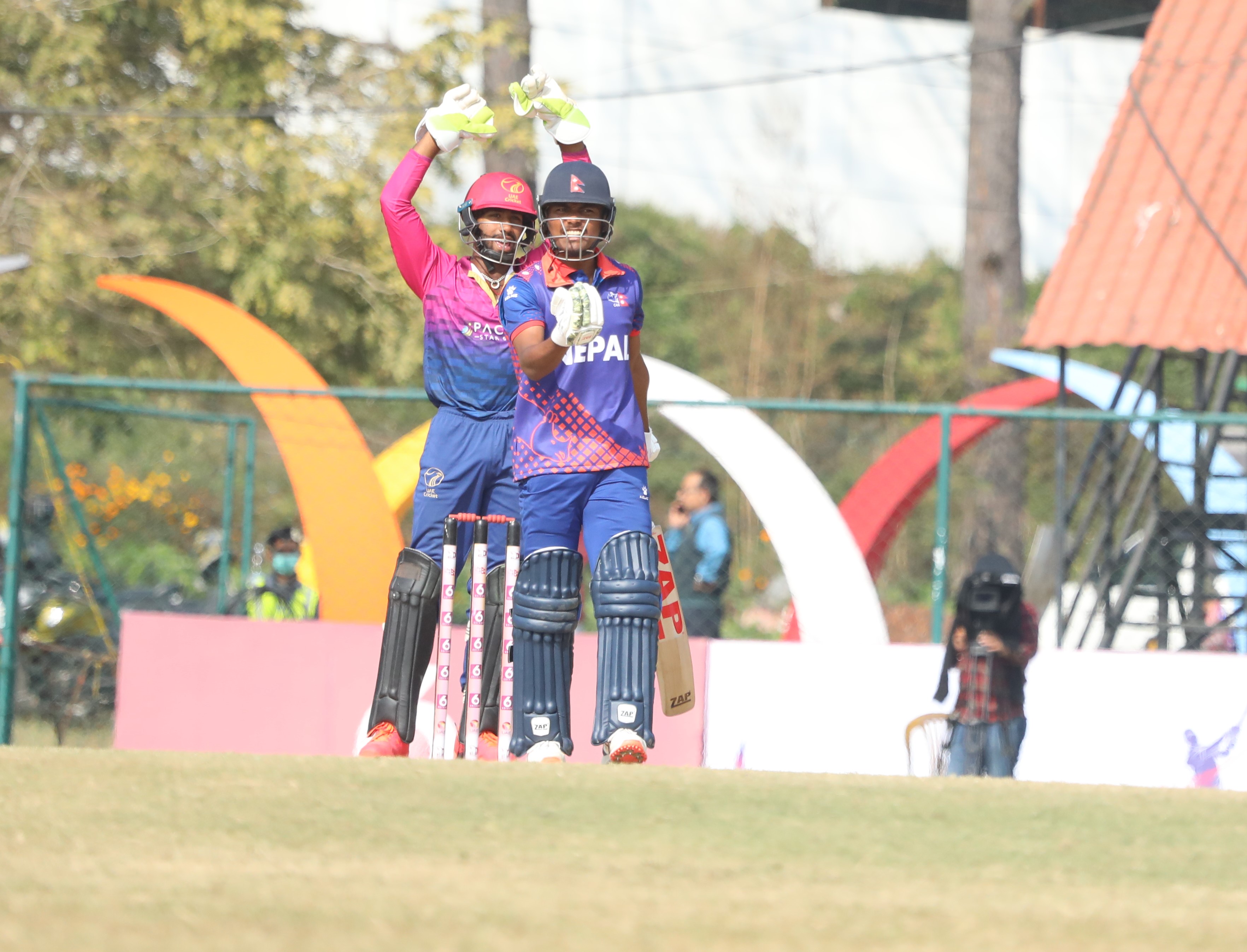United Arab Emirates become first victims of permanent ban on applying saliva after Nepal are awarded five penalty runs

The United Arab Emirates conceded five penalty runs in a losing cause against Nepal on Wednesday after one of their players applied saliva on the ball despite a permanent ban on the practice. The new rule came into effect in September even though a temporary ban has been in place for two years.
The second ODI between the United Arab Emirates and Nepal in Kirtipur on Wednesday featured an unusual incident that resulted in five penalty runs for the latter in a closely fought contest. The visitors became the victims of the newly-affected permanent ban on applying saliva, with the International Cricket Council asserting players can only use sweat to shine the cricket ball.
The event took place in the 22nd over of Nepal's innings, with the team still requiring over a hundred runs with six wickets in hand chasing a sub-par total of 192. Following a dot ball, bowler Zahoor Khan was returning to the mark as the ball hovered around the fielders in the circle before ending up in the hands of Alishan Sharafu stationed at mid-off. The opener first applied the sweat on his forehead to the white rock but then ended up taking some saliva in his finger and rubbing it on the ball, almost instinctively.
Having spotted the act, the umpires stopped play and had an extensive discussion in the middle before eventually signalling five runs for the batting team. This was in accordance to the ICC's introduction of a set of new rules in September which reasserted the temporary ban on saliva usage that had been in place for two years as a precaution against COVID-19.
"If the umpires spot someone applying saliva on the ball blatantly, there's no option but to award five penalty runs to the oppositions straightaway. Earlier, when the rule was initially implemented after the pandemic, there was some leniency in the form of two warnings to the fielding team, since everyone was getting adjusted to the new ruling. We used to talk to the captain and give him a heads-up simply because it was a new rule. Two years on, teams and players are used to it now," a former ICC panel umpire was quoted as saying by ESPN Cricinfo.
Nepal eventually ended up achieving victory with three wickets and 13 balls to spare.
— MINI BUS 2022 (@minibus2022) November 17, 2022
